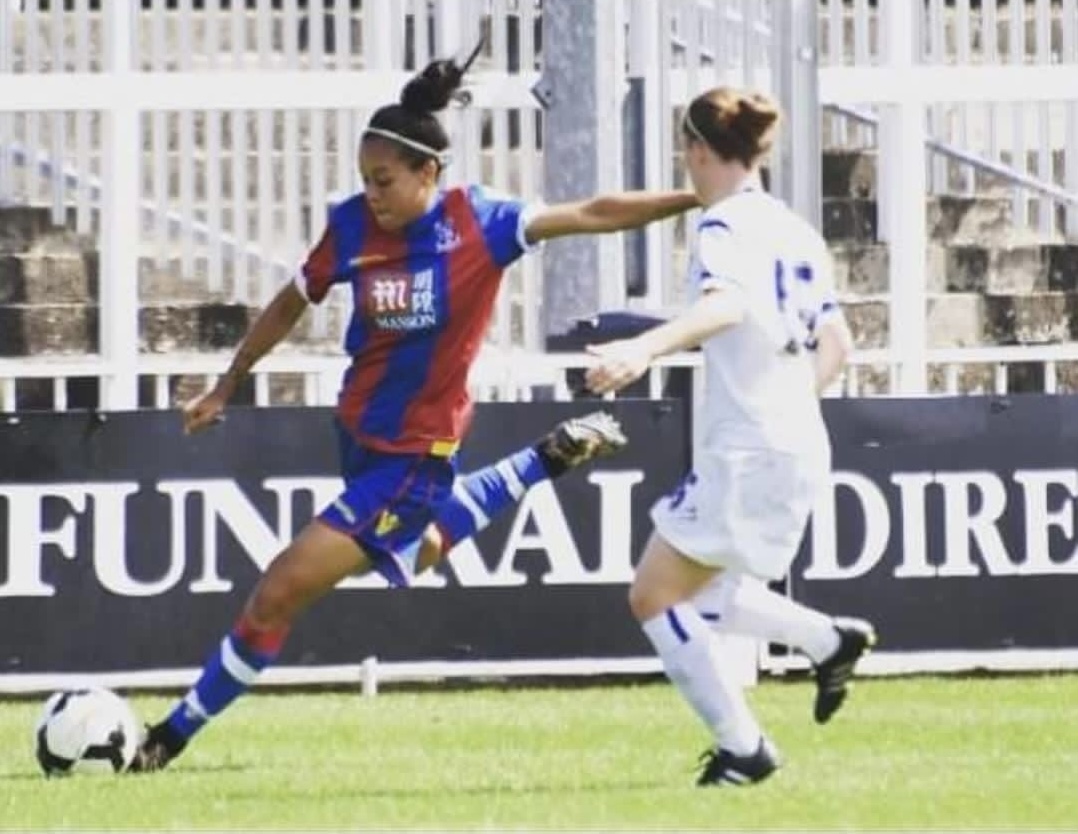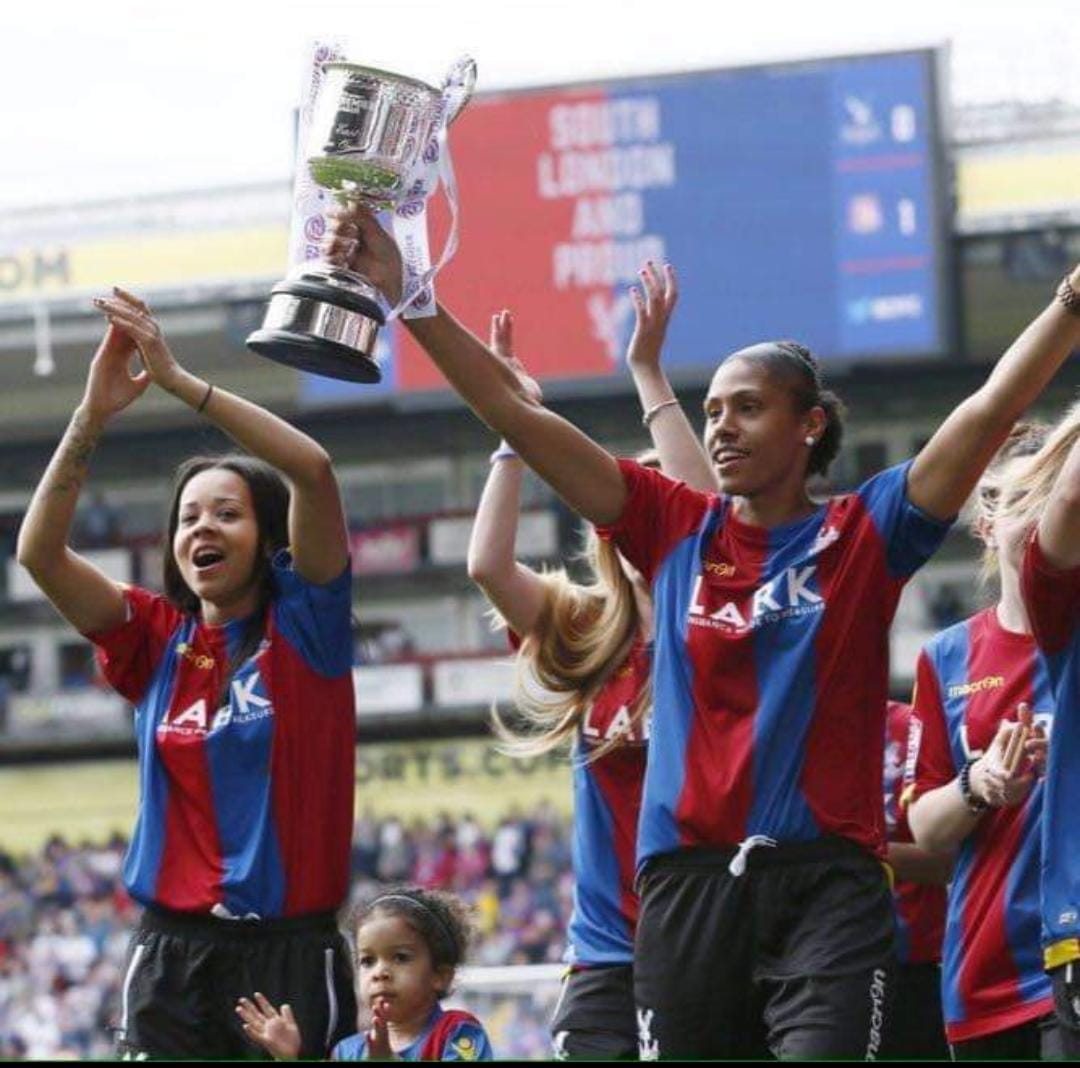A Football Career As A Mother
Tearing a ligament or suffering from serious damage to a bone are football’s most commonly known reasons for long-term set-back’s in a players career.
However, a player falling pregnant whilst in the prime of their career, could arguably be a more detrimental set-back for players within the game.
Aside from an indefinite full return to fitness, questions also arise as to whether a player will possess the same qualities they once had before pregnancy. It is also necessary to consider the mental effects that may occur in the process of returning to the game.
The Sports Gazette spoke with previous Northern Ireland international Pam McRoberts who has gone through two pregnancies during the course of her playing career: “it wasn’t common in women’s football for players to have children,” she said.
“I was the only person in my team to be playing after having a child, so it was more on my part that I didn’t really have the confidence in continuing to play.”

McRoberts fell pregnant with her first child at 26-years-old whilst playing for Charlton Athletic where she spent three seasons.
During her tenure at the club, she decided that her international future lied with Northern Ireland and she received an invitation to their training camp but was unable to attend after finding out she was pregnant.
Being the only player in the league to have gone through this process, returning to football became a challenge.
“Deep down I definitely questioned myself on how it was going to work, at the time there wasn’t anyone I could look up to who had a child and was still playing in women’s football,” McRoberts said.
The feeling of uncertainty is a common throughout Women’s football when thinking about becoming a mother during a footballing career, this view is shared by current Guyana international, Otesha Charles who said: “if you want to compete at the highest level in the game it will be very difficult to do so if you have a child early on in your career.
Not only does the time out of the game have an effect but things such as going away for training camps would be a real struggle.” Charles added.
CLUB SUPPORT
Despite McRoberts’ initial concerns about a return to the game, an opportunity to play for Crystal Palace arose, which was too good to reject.
Playing as a mother at Crystal Palace eased any doubts McRoberts had about returning, largely due to the support she received from the club.
“Palace were very welcoming, the staff would let my son come into the changing room, the managers wife who did ticket sales would also be to look after him during the games,” she said.
“There was one time I saw him eating chips at half-time and I asked who bought them and he said the fans, which was great to hear.”
Support from the fans and people within the club is a crucial factor for players to be able to continue after becoming a mother.
However, the support from the manager and teammates is an even bigger factor for McRoberts as she told of how the reassurance from her Crystal Palace boss gave her confidence to rediscover her best form.
THE PHSYICAL FACTOR
When returning after a long lay-off due to maternity leave the obvious concern is how a mother will be able to physically cope playing football after having a child.
The FA state that women can play up to 13-weeks whilst pregnant until they have to stop under the guidelines, showing that physical doubts come into question during the process of pregnancy.
Steve Allen, the current Gillingham Women FC physio, said: “After birth it would usually take around six months for a player to be able to play a full 90 minute game again.
“For returning from pregnancy on a specific programme, it is a tick-box type of process. If the player returning demonstrates they can perform parts of the programme, they will move to the next stage but if they are really struggling then they’ll stay on the same level.” Allen said.
Despite the problem of returning to full fitness, once this has been overcome the physical effects of pregnancy can potentially enhance a player’s performance.
After birth, it is possible for women to see changes to their pelvic and hips, something that played in McRoberts’ hands: “It sounds strange but I felt as though my weak foot became stronger and I told my physio at the time. The physio went on to say that sometimes your hips change, so this could have played a factor in the difference in the weaker foot.” McRoberts added.
THE MENTAL FACTOR
Playing the sport during and after the pregnancy does not just affect the physicality of a player.
The mentality of an individual has an even bigger impact along the process.
Allen said: “Returning after pregnancy is easier than a broken leg or an anterior cruciate ligament injury because of the mental side of it”.
“There’s no damage to the body it is just the matter of getting the muscles stronger again, which is different to a serious injury where damage has been done, so players tend to mentally feel more comfortable.”
This was also the case for McRoberts, as after giving birth the doubt of returning was only due to the caring of her son, rather than any concerns for any affects the pregnancy would have on her ability to play football at the same level she was at previously.
The birth of her child enhanced her game on a mental level as football became another way to connect with her son.
“I felt like I had to be a role model I had my son coming to the games and I know he was looking up to me so it gave me motivation.” McRoberts said.
“I definitely used to be more of an on-the-edge player and was more aggressive, however with my son at the games I knew I had to be more level-headed and that was definitely one change.”

THRIVING
McRoberts’ career took a turn for the better after returning to the game as a mother, not only did she see the added benefits with her fitness and ability, but following her return she became the first ever Crystal Palace ladies’ player to earn an international cap.
Her experiences have encouraged players, who wish to continue their footballing career post-pregnancy, to ask the former Crystal Palace player for some valuable advice.